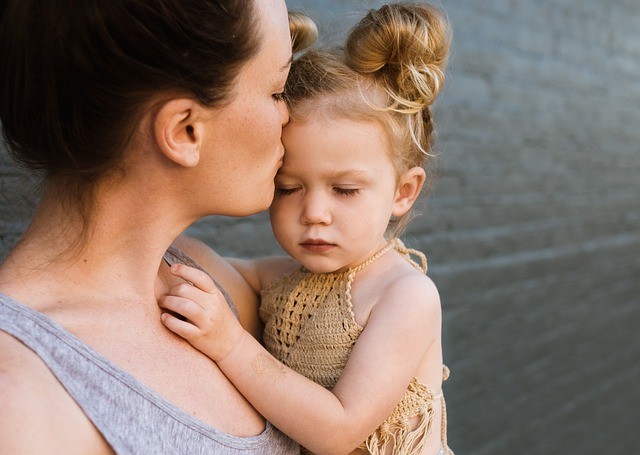One word often strikes fear into the heart of school-age children everywhere – exams.
Exams, whether we like it or not, are a necessary part of education. They dictate so much within a child’s life; be it getting into their grammar school of choice, or heading off to their chosen sixth form or college to study their A-levels.
There’s no denying that exams cause stress and anguish, but with proper preparation, so much of that drama can be alleviated. When you create a calmer mindset an attitude towards exams, your child has a much better chance at succeeding and reach their potential.
While not all children find it easy to sit an exam, there is no reason why you can’t help them to face this difficult time with more confidence.
In this article, we’re going to talk about how you can help to prepare your child for their 11+ or GCSE exams.
First things first, what are these two important sets of exams?
What is The 11+ Exam?
The 11+ exam is a test that is taken by students in England who want to get into a grammar school. It is an entrance exam and failing this test could mean that they lose their potential place.
While this exam is optional, it is a good way to broaden your child’s academic options by giving them the chance to get into a selective school for their education from year 7 onwards.
The exam is only taken in England, as Scotland and Wales no longer have any grammar schools. The test is taken after a child reaches the age of 11 years and when reach their last year of their primary education, i.e. year 6.
The exams often take place in September and results are received in October. This allows parents to place their applications for secondary schools in good time for the following academic year.
What Are GCSEs?
GCSEs or General Certificate of Secondary Education, are a series of exams taken in a child’s final year of their secondary education, i.e. year 11, and when a child is between 15-16 years of age.
GCSEs are studied over two years, meaning that when a child moves into year 10, they will start studying for their GCSE exams to be taken at the end of year 11. These usually commence between May to July of the academic year and results are received in August.
GCSEs are mostly assessed based on exams however coursework also contributes towards the final mark.
Children take a minimum of 5 subjects, with a GCSE exam taken at the end of year 11 for each subject, however most students study between 9-10 subjects, with the chance to receive 9-10 GCSE marks at the end.
Top Tips to Help Your Child Prepare For 11+ & GCSE Exams
The major difference in approach when helping your child to prepare for either set of exams is their age. A child who is studying for their 11+ is obviously younger than a child about to take their GCSE exams. Maturity plays a huge part in how well they deal with upcoming tests such as this, and it’s important that, as parents, you help to alleviate the pressure by not piling on extra urgency.
Of course, it’s important that your child focuses and does their very best, but trying to drill into them every single day how important these tests are is not going to help them succeed. Instead, let them know that you’re sure they can do well and that as long as they do their best, there is nothing else to worry about.
You can then add in extra tips to ensure that they reach their potential. Piling on the pressure will simply undo all the good work you and your child have done in the months beforehand.
Practice Makes Perfect
The human brain learns by repetition, so it makes sense that by encouraging your child to practice the information they need to retain for their exams, they’ll be able to pull it to the front of their mind when they need it the most.
Flash cards are a great way to help your child learn. These use the repetition model, and they’re also akin to a game, which is particularly useful for younger children who are about to take their first set of major exams in their 11+.
Focus on a small amount of information and then create flash cards, e.g. a picture that relates to a piece of information. Then, show your child the card and ask them what it pertains to, along with questions related to it. The picture will jog their memory and by using this tactic repetitively, they’ll store the information and be able to use it in their exams.
Past exam papers are also a good option here and especially for GCSEs. Your child’s teacher will be able to provide you with past exam papers that you can use to help your child prepare for the different formats requires in exams and also to help them practice their own timing. That way, they’re not going to be worried about running out of time and then rushing the final questions at the end.
Helping your child to time sections appropriately helps them to relax. That way, they know they have enough time to cover all sections and they’re not going to miss questions because they’re worried about the time on the clock.
Help Your Child Find Their Most Productive Time
Every single child is different in terms of when they find it easiest to soak up information and answer questions. Some children are much more productive in the morning, while others find it much easier to revise and learn during the early afternoon or late afternoon.
Help your child to pinpoint their most productive time and then schedule in study for those specific windows.
A study schedule is a good idea whether you’re preparing your child for their 11+ or their GCSEs, however the latter requires more subject information to be retained, so a timetable of different subjects is a good choice here. However, when helping your child to draw up their study/revision timetable, remember that breaks and recreational time is just as important as study.
By trying to ‘cram in’ too much information, you’re simply going to overload your child’s brain and they’re not going to retain anything. Some children are also prone to rebelling against study when they’re pushed too hard to do it. By factoring in time to do the things they enjoy, they’ll be more inclined to stick to their study schedule and therefore be far more prepared for their exams.
Mix Things Up
As part of your child’s study schedule, make sure that you mix up the subjects and activities they focus on. While repetition is a key way to learn, it’s very easy for children to become bored when constantly doing the same activity or learning about the same subject.
While you shouldn’t wildly swing from one unassociated subject to another, be sure to mix things up so they remain connected and their concentration doesn’t wander.
It’s also a good idea to start with your child’s least favourite subject or topic and get that out of the way. Then, everything else will be much easier afterwards. You should also finish with the subject or topic they enjoy the most, as they know it is coming, and they’ll stick with the revision to get to that point. It will also help them to finish their study on a high point, and they’re more likely to go back to it the next day.
Preparation is Also About Nutrition
To help your child prepare for their exams, you should also make sure that you’re giving them the nutrition and hydration they need to keep their brain sharp and focused.
Energy levels and the ability to focus are affected drastically by nutrition so make sure that you add oily fish (full of omega 3), seeds, nuts, blueberries, and yogurt to their diet in particular. You should also make sure that they drink plenty of water to remain hydrated, as this is ideal for not only health, but also keeping the brain sharp.
On the day of the exam, avoid sugar or caffeine. This may give them a temporary boost, but they will crash at some point and if that happens halfway through the exam, it will affect their focus and concentration dramatically. Instead, opt for foods which relate energy slowly and make sure that they continue to drink water.
On The Day
On the day of the exam, try and keep your child as calm and possible and do not allow them to see your nerves either. Teach them to take deep breaths to control their nerves and to pay no attention anyone else in the room. It’s also important to tell your child that it’s normal to feel a little nervous, and that everyone else is feeling the same.
Double check all details the night before, to make sure that your know the time and place of the exam and any equipment they’re supposed to take with them. Double check your route to the exam location and leave early so there are no issues with traffic – this will only cause both you and your child to panic and that’s hard to overcome once you arrive.
After the exam has finished, congratulate your child on all the hard work they’ve done and tell them how proud you are of them. Encourage them to forget about the exam now – there is nothing more they can do until their results are received. If they’re about to take another exam in a few days, i.e. if they’re taking GCSEs, give them a short amount of time to calm down and recover before re-starting revision for the next exam.




